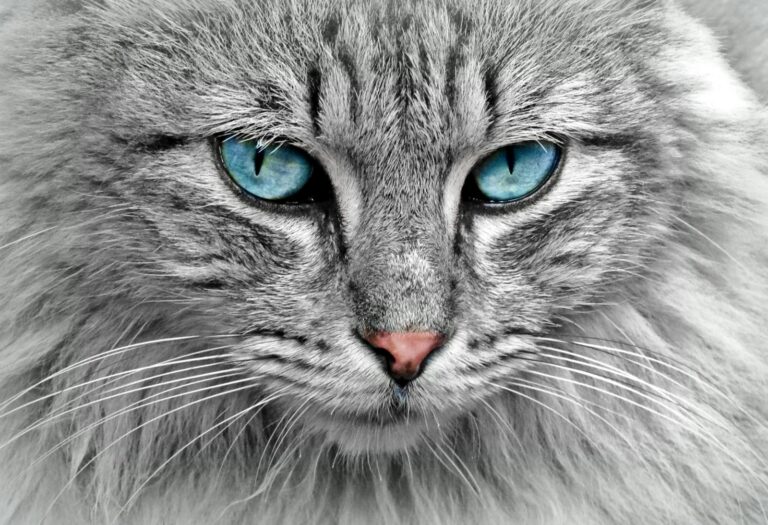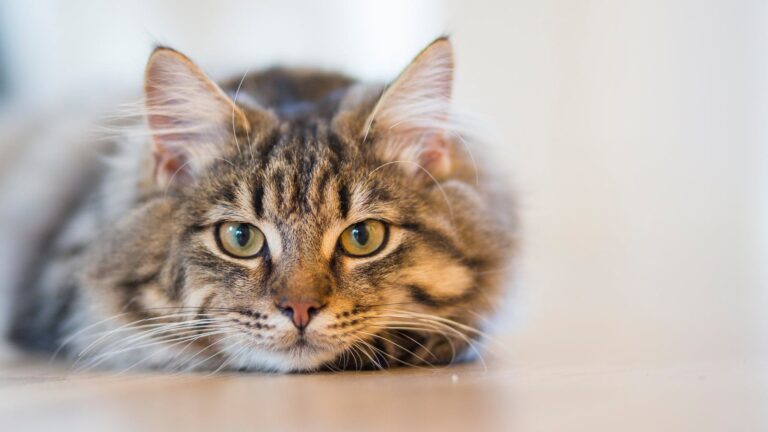Can Cats Recognize Their Names? Science Says Yes
Can cats recognize their names? Science says yes! This intriguing question has captivated the hearts of pet owners and researchers alike. While cats have long been viewed as enigmatic creatures, recent studies suggest that they may indeed respond to their names in a way that confirms their understanding of human language. In this article, we will delve into the fascinating world of feline cognition, exploring how cats recognize their names and the broader implications of their communication with humans.
Understanding Cat Cognition
Before we dive into whether cats can recognize their names, it’s essential to understand the cognitive abilities of our feline friends. Although often perceived as aloof, cats are intelligent animals with complex behaviors and communication skills.
The Evolution of Cat Intelligence
Cats have been companions to humans for thousands of years, evolving from solitary hunters to social creatures. This shift not only influenced their behaviors but also their cognitive abilities.
- Natural Selection: Over time, those cats that were more social and able to communicate effectively with humans likely thrived.
- Domestication: As cats became domesticated, they adapted to living alongside people. Their intelligence evolved to include an understanding of human cues.
Understanding these evolutionary changes helps us appreciate how cats may process information differently than other domesticated animals, including dogs.
Communication in Cats
Cats communicate in various ways, using body language, vocalizations, and even scent marking.
- Vocalizations: From meows to purrs, cats use different sounds to express their needs and feelings. Researchers suggest that the frequency and tone of a cat’s meow can indicate what they’re trying to say to their human companions.
- Body Language: Cats express themselves through their posture, tail movements, and facial expressions. For instance, an upright tail often indicates confidence or happiness, while flattened ears signify fear or aggression.
- Scent Marking: Cats have scent glands on their faces and paws, which they use to mark territory or show affection. This behavior is fundamental to how they communicate with one another and with their human families.
These varied methods of communication highlight the complexity of cat cognition and set the stage for understanding if they can recognize their names.
Recognizing Human Voices
Research suggests that cats can differentiate between human voices. They may not respond to them like dogs do, but they can identify and react to their owner’s voice.
- Auditory Processing: Studies reveal that cats possess excellent hearing and can discern specific frequencies, allowing them to pick out their name from background noise.
- Familiarity: Cats are more likely to respond to familiar voices over unfamiliar ones. This selective response signifies their ability to recognize individual humans.
The significance of these findings plays a crucial role in answering the central question: Can cats recognize their names?
Scientific Evidence on Name Recognition
Recent scientific studies shed light on the remarkable cognitive abilities of cats, particularly regarding their capacity to recognize their names. These studies provide compelling evidence that felines can not only hear their names but also associate them with specific meanings and responses.
Recent Research Findings
In 2013, a groundbreaking study conducted by animal behaviorist Atsuko Saito at Sophia University in Japan explored whether cats could distinguish their names from other words.
- Study Design: The research involved observing 78 domestic cats in various households to see how they responded when their name was called versus other similar-sounding words.
- Results: The findings indicated that most cats turned their heads and focused their attention when called by name, demonstrating a clear recognition of their identities.
This study marked a turning point in understanding feline cognition. It challenged the idea that cats were indifferent to human communication and revealed their capacity for name recognition.
How Cats Respond to Their Names
The way cats respond to their names can vary significantly based on individual personality and environmental factors.
- Curiosity and Attention: When a cat hears its name, it may exhibit curiosity—turning its head, flicking its ears, or moving toward the source of the sound.
- Affectionate Behavior: Some cats may respond to their names with affectionate behavior, such as approaching their owner, rubbing against their legs, or vocalizing back.
- Disinterest: Conversely, some cats may show little to no reaction, which can stem from a variety of reasons, including mood, environment, or simply a unique personality trait.
Understanding these nuances can aid in enhancing communication between you and your feline friend, fostering a better bond.
The Role of Socialization
A cat’s early experiences and socialization significantly influence its ability to recognize its name.
- Kitten Development: Kittens exposed to human interaction during their formative months are more likely to respond positively to their names later in life.
- Owner Interaction: Regularly calling a cat by its name and associating it with positive experiences (like treats or playtime) strengthens the recognition process.
Positive reinforcement plays a vital role in reinforcing name recognition, indicating that the bond between a cat and its owner can enhance the likelihood of the cat responding to its name.
Practical Tips for Encouraging Name Recognition
Now that we have an understanding of how and why cats can recognize their names, let’s explore practical tips to help strengthen this bond and encourage greater recognition in your feline companion.
Creating Positive Associations
The key to helping your cat recognize its name lies in creating positive associations whenever you call it.
- Use Treats and Rewards: Whenever you call your cat by name, offer a treat or engage in playful behavior. This reinforces the idea that responding to its name leads to positive outcomes.
- Playtime Engagement: Incorporate your cat’s name during play sessions. For example, saying “Fluffy, come play!” followed by engaging with toys can make it more likely for your cat to associate its name with fun.
Creating an enjoyable experience linked to the name will encourage your cat to respond when called.
Consistency is Key
Cats thrive on routine and consistency.
- Regular Use: Use your cat’s name consistently in daily interactions. This includes calling your cat for feeding, during playtime, or when giving affection.
- Avoid Nicknames: While affectionate nicknames can be charming, they may confuse your cat. Stick to using the original name during training to facilitate recognition.
Consistency can reinforce the connection between the name and its identity, making it easier for your cat to respond appropriately.
Patience and Understanding
Every cat is unique, and their learning processes will vary.
- Be Patient: Some cats may take longer to recognize their names than others. It’s essential to remain patient and not force the issue.
- Respect Individual Personality: If your cat seems disinterested, consider whether it’s a personality trait rather than a refusal to acknowledge its name. Some cats may simply prefer to interact on their own terms.
Understanding and respecting your cat’s individuality will foster a stronger bond, ultimately leading to improved recognition of their name.
The Broader Implications of Name Recognition
Understanding whether cats can recognize their names opens up avenues for deeper insights into feline intelligence and communication.
Impact on Human-Cat Relationships
Recognizing their names can significantly affect the relationship between cats and their human companions.
- Strengthened Bond: When a cat recognizes its name and responds positively, it fosters trust and connection with the owner, enhancing the overall bond.
- Improved Communication: By recognizing their names, cats can participate more actively in the human world, leading to better interactions and understanding between pets and their owners.
- Behavioral Management: Understanding cat recognition can also assist in addressing behavioral issues, enabling owners to call their cats effectively during training or correction scenarios.
A strong bond built upon effective communication enhances the quality of life for both cat and owner.
Shifting Perspectives on Cat Intelligence
The belief that cats are less intelligent than dogs is being challenged by contemporary research.
- Complex Problem Solving: Studies indicate that cats exhibit problem-solving skills and emotional intelligence, qualities once attributed solely to dogs.
- Social Learning: Cats have shown the ability to learn through observation and imitation, highlighting cognitive skills akin to those of other intelligent species.
As society begins to view cats as intelligent beings capable of understanding human communication, it reshapes how we interact and care for them.
Future Research Directions
While current studies indicate that cats can recognize their names, there’s much more to explore regarding feline cognition.
- Longitudinal Studies: Further research could investigate the long-term effects of socialization on name recognition in cats.
- Cross-Species Comparisons: Comparing cat cognition with that of other domesticated animals could yield unexpected insights into evolutionary development.
Exploring these avenues can deepen our understanding of animal intelligence and communication, paving the way for new discoveries about our beloved pets.
Conclusion
In summary, the question of whether cats can recognize their names has garnered significant scientific interest, yielding persuasive evidence that they can, indeed, distinguish their names from other words. As we’ve learned, cats possess complex cognitive abilities, shaped by their evolution and socialization with humans. Engaging with your cat using positive reinforcement, consistent interactions, and patience can enhance the recognition process. Ultimately, acknowledging and understanding your cat’s intelligence not only enriches the human-animal bond but also paves the way for a deeper appreciation of their unique personalities and communication styles.







